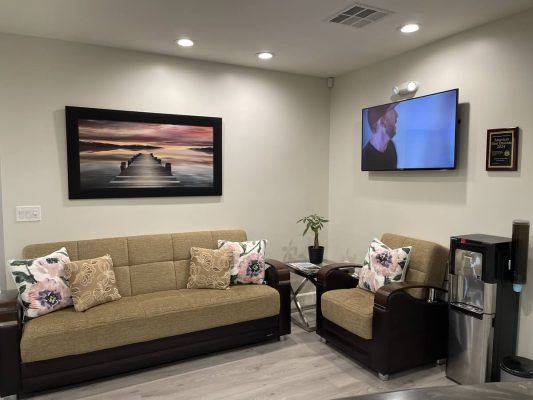In a world where image is everything, the desire for a dazzling white smile has led many to turn to over-the-counter teeth whitening treatments and at-home bleaching kits. While occasional whitening under a dentist’s guidance can be safe and effective, excessive or obsessive use of bleaching products can lead to a dangerous condition known as bleachorexia.
Bleachorexia is a growing concern in cosmetic dentistry—one that not only puts your oral health at risk but also reflects deeper issues related to body image and self-esteem. If you or someone you know may be affected, understanding the warning signs and risks can help you take action before irreversible damage occurs. Call our Northridge, CA, dentist at (818) 709-8645 to schedule an evaluation. We proudly serve patients in Chatsworth, Granada Hills, Lake Balboa, and surrounding areas.
What Is Bleachorexia? Our North Hills Dentist Explains
Bleachorexia refers to the obsessive overuse of teeth whitening products and cosmetic dentistry in pursuit of the “whitest” smile possible. While it’s not yet recognized as an official psychological disorder by the American Psychiatric Association, many dental professionals consider it a real and harmful behavior pattern closely related to body dysmorphic disorder (BDD).
BDD is a mental health condition in which individuals perceive flaws in their appearance that are minor or nonexistent. In the case of bleachorexia, this obsession centers on tooth color. Those affected often believe their teeth are never white enough—even when they appear perfectly normal.
With the growing popularity of social media, filters, and picture-perfect smiles, the pressure to meet unrealistic beauty standards can push individuals toward harmful habits. Teeth bleaching kits are easily accessible in stores and online, making it all too easy to fall into a cycle of overuse.
Warning Signs of Bleachorexia
Bleachorexia goes beyond a cosmetic concern—it’s a behavioral red flag. Common signs may include:
-
Using whitening products multiple times a day or far beyond the recommended duration
-
Feeling anxious, irritable, or depressed when not whitening teeth
-
Experiencing pain or sensitivity but continuing to bleach
-
Layering multiple whitening products (e.g., strips, gels, toothpaste)
-
Damaged enamel, gum irritation, or visible tooth weakening
Left unchecked, this obsessive behavior can lead to enamel erosion, gum recession, tooth sensitivity, and even permanent tooth loss.
What Causes It?
While bleachorexia may seem like a superficial issue, it’s often rooted in deeper emotional and psychological factors:
-
Low self-esteem or body image concerns
-
Perfectionism or appearance-related anxiety
-
Social media pressure or comparison culture
-
Mental health disorders like BDD or anxiety disorders
For some, teeth whitening becomes a form of control or self-soothing in times of stress. Like other appearance-focused obsessions, it can become compulsive—despite clear signs of physical harm.
How Can Bleachorexia Be Treated?
If you suspect you may be overusing whitening products or are concerned about a loved one’s behavior, the most important first step is seeking professional help from a dentist near Granada Hills.
-
Consult with a dentist near you: A qualified professional like Dr. Kevin Gropp, DDS, can assess the health of your teeth, recommend safe whitening alternatives, and educate you on the limits of safe bleaching.
-
Talk to a mental health provider: If bleachorexia is linked to body image issues or anxiety, therapy can be a vital part of recovery. Cognitive behavioral therapy (CBT) is often effective for BDD-related concerns.
-
Stop using over-the-counter products unsupervised: Your oral health should always come first. Avoid excessive or unregulated bleaching without dentist oversight.
Take Bleachorexia Seriously—Your Health Depends on It
While many people want a whiter smile, bleachorexia is a warning that something deeper may be going on. This behavior can lead to long-term damage—not just to your teeth, but also to your self-image and overall well-being. If you suspect that you or someone close to you may be struggling with this condition, don’t wait.
Dr. Kevin Gropp, DDS, in Northridge, is here to help. With compassionate care and expert knowledge, Dr. Gropp can assess your oral health, provide safe whitening options, and connect you with the resources you need to break the cycle of bleachorexia. Your smile is worth protecting. Contact Dr. Kevin Gropp’s office today to schedule a consultation and take the first step toward safe, confident oral care. Call our Northridge dental office at (818) 709-8645 to schedule your night guard consultation. We’re proud to provide expert dental care for patients in Chatsworth, Granada Hills, Lake Balboa, and nearby neighborhoods.



